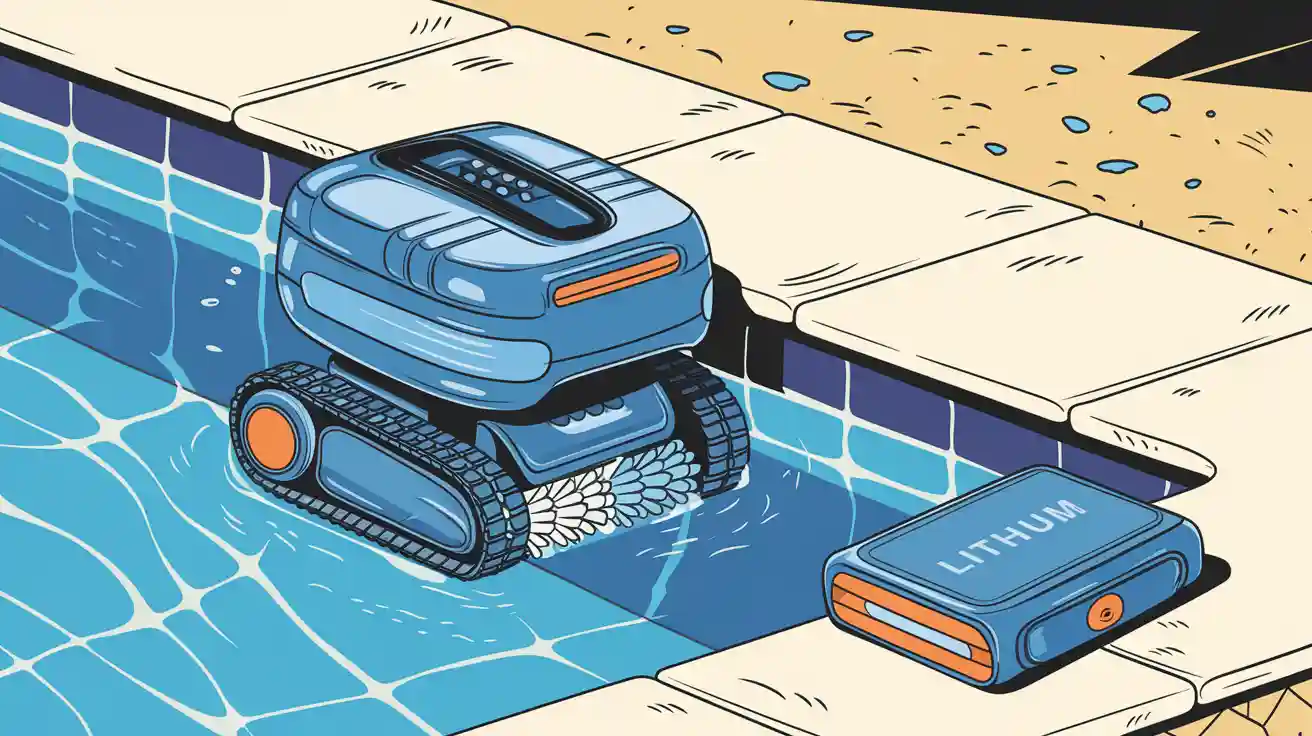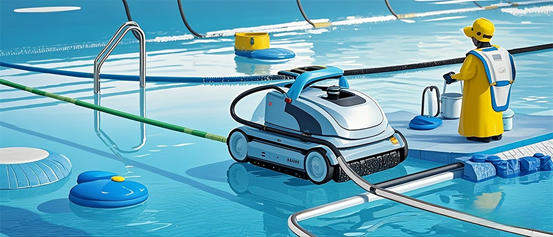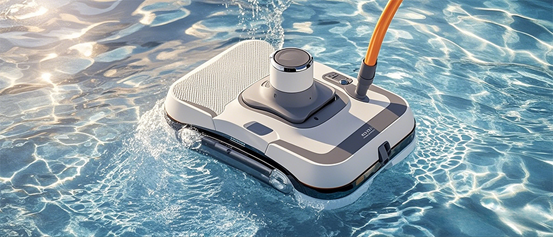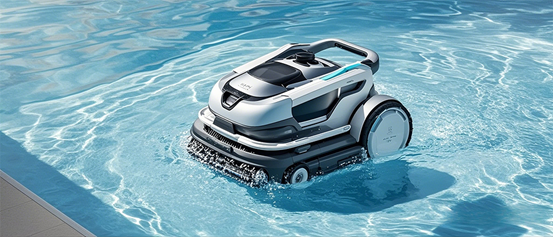Contents
- Key Takeaways
- Introduction: Why Battery Choice Matters for Pool Cleaning
- Part 1: The Rise of Robotic Pool Cleaners and Cordless Pool Cleaners
- Part 2: Lithium-Ion Batteries—The Best Battery for Pool Cleaner Devices
- Part 3: Overcoming Weak Suction Power and Constant Recharging
- Part 4: Boosting Energy Efficiency for Long-Term Savings
- Part 5: Addressing Fire Risks Through Advanced Engineering
- Part 6: Customized Battery Solutions for Different Pool Maintenance Needs
- Part 7: Achieving Enhanced Performance with Advanced Suction Technology
- Part 8: Future Innovations—Solid-State Battery Technology
- FAQs

Manufacturers worldwide are transforming pool maintenance by adopting lithium ion batteries in robotic pool cleaners and cordless pool cleaners. This transition addresses multiple challenges, such as weak suction power, constant recharging, fire risks, and the need for long-term savings. With lightweight and powerful battery technology at the core, today’s pool cleaning devices deliver enhanced performance, superior energy efficiency, and reliable runtime. In this guide, we explore why lithium ion batteries are considered the best battery for pool cleaner systems, how they mitigate common issues, and what manufacturers can do to achieve customized battery solutions.
Key Takeaways
- Lightweight and Powerful: Lithium-ion cells provide a high energy-to-weight ratio, enabling cordless robotic pool cleanermodels to climb walls and remove debris without compromising mobility.
- Long-Term Savings: Extended lifespans and fewer replacements reduce total costs for both manufacturers and end users.
- Stable Power Output: Consistent voltage delivery helps eliminate weak suction power, ensuring thorough debris removal.
- Enhanced Safety: Advanced battery technology minimizes fire risks through waterproof seals, corrosion-resistant materials, and built-in thermal controls.
- Customizable Designs: Tailored voltages, capacities, and connectors allow reliable battery solutions for diverse pool cleaning tasks in residential and commercial settings.
Introduction: Why Battery Choice Matters for Pool Cleaning
In modern pool cleaning scenarios—spanning from backyard pools to large commercial facilities—battery technology significantly influences performance and cost. Traditional chemistries like lead-acid or nickel-based batteries often result in constant recharging, limited runtime, and potential fire risks. Conversely, lithium-ion batteries offer a lightweight and powerful alternative, fueling both robotic pool cleaners and cordless robotic pool cleaner models. Their high energy efficiency enables devices to handle extensive pool cleaning tasks while maintaining consistent suction power and stable operation.
Part 1: The Rise of Robotic Pool Cleaners and Cordless Pool Cleaners

1.1 Growing Demand in Residential and Commercial Settings
Robotic pool cleaners and cordless pool cleaners are increasingly popular in both homes and commercial venues like hotels, resorts, and fitness centers. These devices automate pool cleaning tasks, minimizing manual labor while improving water clarity. As end users seek convenience and efficiency, manufacturers look to lithium-ion batteries for better performance and long-term savings.
1.2 Balancing Mobility and Power
Both robotic pool cleaners and cordless robotic pool cleaner designs depend on optimal mobility to climb walls, traverse floors, and navigate tight corners. By incorporating lithium-ion batteries, devices benefit from a higher power-to-weight ratio, reducing weak suction power issues and enhancing overall cleaning capabilities.
Part 2: Lithium-Ion Batteries—The Best Battery for Pool Cleaner Devices
2.1 High Energy Density for Enhanced Performance
Lithium-ion batteries excel in providing robust energy output within a compact form. This lightweight and powerful advantage is crucial for cordless pool cleaners that must remain agile. With more available energy, robotic pool cleaners can run longer cycles, tackle larger debris loads, and complete pool cleaning tasks with fewer interruptions.
2.2 Extended Lifespan and Fewer Replacements
Compared to older battery chemistries, lithium-ion batteries endure more charge-discharge cycles. This longevity cuts down on replacements and labor expenses. For commercial facilities where constant recharging can disrupt operations, a longer lifespan translates into long-term savings and reliable daily performance.
2.3 Consistent Voltage to Prevent Weak Suction Power
A stable voltage supply is pivotal for advanced suction technology. Lithium-ion batteries maintain a steady output, ensuring that motors and brushes in robotic pool cleaners do not lose power mid-cycle. By mitigating weak suction power, manufacturers can guarantee better debris removal.
Part 3: Overcoming Weak Suction Power and Constant Recharging

3.1 Sustaining Strong Suction Throughout the Cleaning Cycle
Voltage drops in underpowered batteries lead to weak suction power, causing poor cleaning results. Lithium-ion batteries avoid this pitfall by delivering consistent voltage levels. As a result, cordless robotic pool cleaner devices can efficiently remove dirt, leaves, and other contaminants without frequent battery-related interruptions.
3.2 Faster Charging Time for Increased Uptime
Constant recharging hampers productivity, especially in commercial settings. Lithium-ion batteries often feature shorter charging time, letting pool cleaning units return to work sooner. This advantage is particularly beneficial for large or frequently used pools, where downtime must be minimized.
3.3 Reducing Operational Costs
Frequent battery swaps and extended charging sessions add to labor and utility expenses. By embracing lithium-ion batteries, manufacturers empower end users to spend less time on maintenance and more on efficient pool cleaning tasks, leading to lower total operational costs.
Part 4: Boosting Energy Efficiency for Long-Term Savings
4.1 Lower Electricity Consumption
Energy efficiency is a hallmark of lithium-ion batteries. They convert stored energy into mechanical work with minimal loss, reducing electricity bills over time. For facilities managing multiple robotic pool cleaners, the cumulative cost benefits can be significant.
4.2 Battery Health Management
Advanced battery management systems protect lithium-ion batteries from overcharging or deep discharges. Maintaining optimal charge levels preserves battery health, prolongs lifespan, and guarantees enhanced performance throughout the product’s life cycle.
4.3 Eco-Friendly Operations
Efficient energy use also contributes to eco-friendly pool cleaning tasks. By cutting power consumption and extending battery lifespans, lithium-ion batteries help reduce waste, aligning with broader sustainability goals in the pool maintenance industry.
Part 5: Addressing Fire Risks Through Advanced Engineering
5.1 Enhanced Safety Protocols
While any battery technology can pose fire risks, modern lithium-ion batteries are built with multiple safety layers—such as separators, thermal controls and protective circuitry. These measures significantly reduce the chances of overheating or thermal runaway.
5.2 Waterproof and Corrosion-Resistant Designs
Pool environments feature water, humidity, and chemicals like chlorine. Reliable battery solutions incorporate waterproof seals and corrosion-resistant materials, ensuring that cordless pool cleaners and robotic pool cleaners remain safe under challenging conditions.
5.3 Real-Time Temperature Monitoring
Sophisticated battery management systems continuously track temperature. If heat builds up, the system can modulate power or shut down, safeguarding both the pool cleaner and users from potential hazards.
Part 6: Customized Battery Solutions for Different Pool Maintenance Needs

6.1 Tailored Voltage and Capacity
Every pool cleaning application has unique power requirements. Customized battery solutions allow manufacturers to match voltage, capacity and connector types precisely to each robotic pool cleaner or cordless robotic pool cleaner design.
6.2 Modular Construction
Modular battery packs simplify production and maintenance. Standardized components make it easier to scale for different models, adapt to specialized pool cleaning tasks, or incorporate advanced features like remote monitoring.
6.3 Connector and Form Factor Compatibility
Integrating a battery for pool cleaner systems often demands specific connector types. With customization, manufacturers can ensure that the battery aligns seamlessly with existing wiring, minimizing installation errors and boosting reliability.
Part 7: Achieving Enhanced Performance with Advanced Suction Technology
7.1 Steady Power for Debris Removal
High suction force requires consistent voltage. Lithium-ion batteries excel at delivering the necessary current to run brushes, pumps, and motors without weak suction power, enabling thorough debris removal in fewer passes.
7.2 Tackling Varied Pool Cleaning Tasks
From fine sand to larger debris, different pools present unique challenges. A cordless robotic pool cleaner equipped with lithium-ion batteries can adjust suction levels and runtime to handle varied pool cleaning tasks, ensuring complete coverage.
7.3 Reducing Manual Intervention
By automating the majority of pool maintenance, robotic pool cleaners free up time and resources. The stable performance of lithium ion batteries reduces breakdowns and repeated passes, allowing pool operators to focus on other responsibilities.
Part 8: Future Innovations—Solid-State Battery Technology
8.1 Next-Level Safety and Performance
While lithium-ion batteries currently dominate pool cleaning, solid-state battery technology has even lower fire risks, higher energy density and faster charging. Large Power’s solid-state innovations could soon redefine how manufacturers approach robotic pool cleaners and cordless pool cleaners.
- Higher Energy Density: Extends runtime further, reducing recharging frequency.
- Faster Charging: Minimizes downtime for commercial pool maintenance tasks.
- Improved Durability: Solid electrolytes enhance stability in extreme conditions.
FAQs
What makes lithium ion batteries the best battery for pool cleaner devices?
They combine lightweight and powerful operation, long lifespans, and stable voltage, addressing issues like weak suction power and constant recharging in pool cleaning applications.
Are lithium ion batteries safe for pool environments?
Yes. Reputable manufacturers employ waterproof seals, corrosion-resistant materials, and thermal management to minimize fire risks and ensure reliable operation under wet conditions.
How do lithium ion batteries improve runtime for robotic pool cleaners?
Their high energy density and efficient discharge curves allow cordless pool cleaners to run longer, reducing downtime and the need for constant recharging.
Can battery solutions be customized for different pool cleaning tasks?
Absolutely. Customized battery solutions let you tailor voltage, capacity, and connectors to meet the specific requirements of each robotic pool cleaner or cordless robotic pool cleaner model.
Do lithium ion batteries offer long-term savings?
Yes. Their extended lifespan, fewer replacements, and better energy efficiency lead to lower operating costs over time, benefiting both manufacturers and end users.
What if I need even higher energy density or faster charging times?
Ongoing research into advanced battery technology (like solid-state battery cells) promises further gains in safety, runtime, and charging time, potentially redefining pool cleaning in the future.





